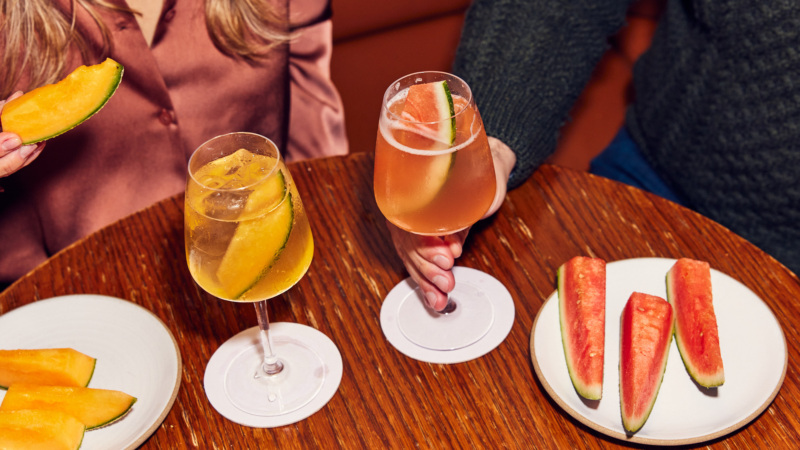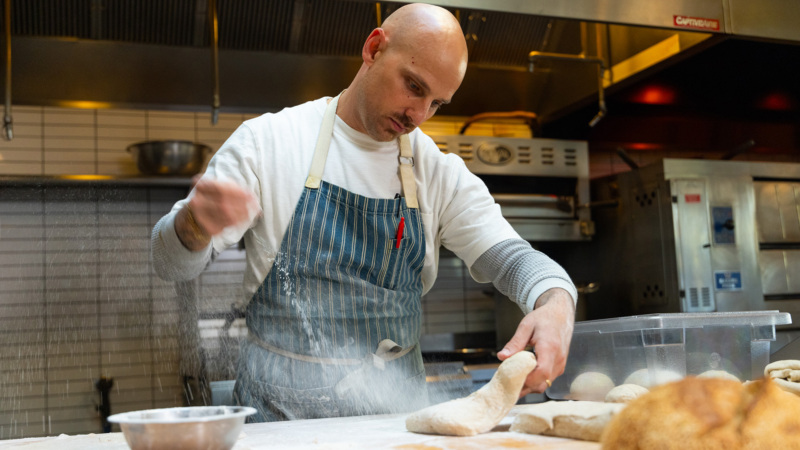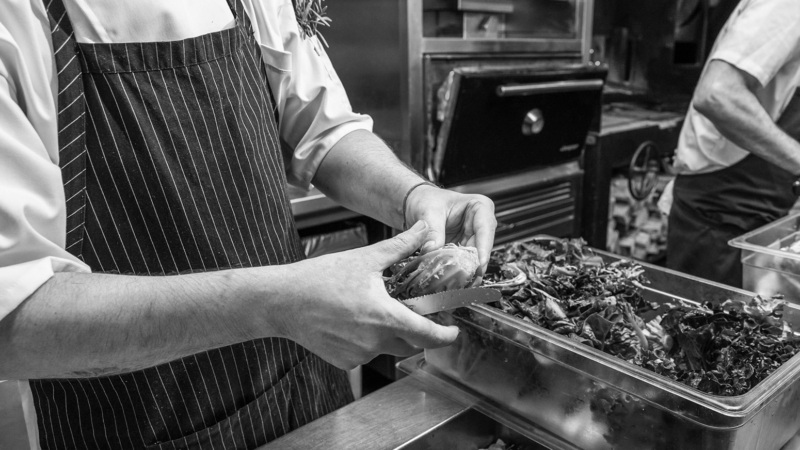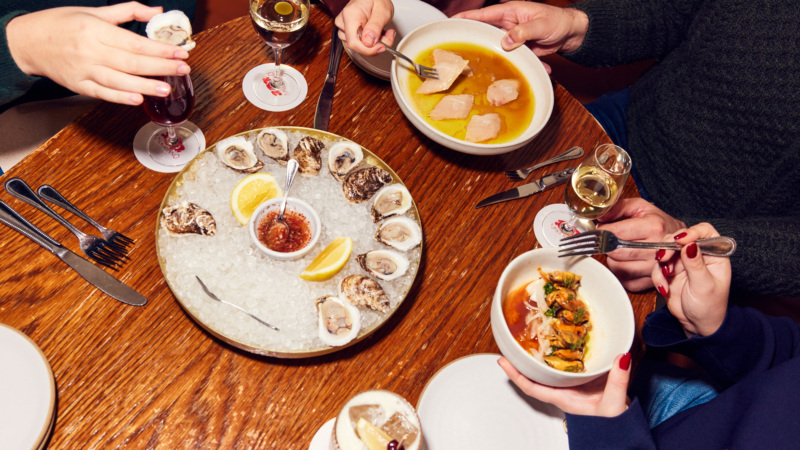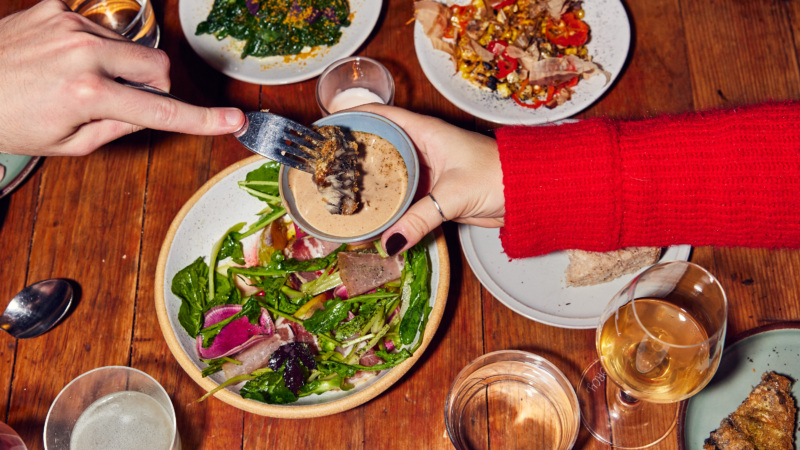

Food Forward: The Future of Dining Out by Resy – 2023 Trend Report, UK Edition
Published:
2022 has been a year of evolution and calibration for the hospitality industry. There have been seismic changes in the world around us, with economic, social, and political shifts having an impact on restaurants and diners alike. 2023 is set to be a year of challenge but also opportunity.
At Resy, we continue to keep our ear close to the ground. Our mission is to be a resource to everyone who loves dining as much as we do, which is why we’ve launched Food Forward: Resy’s Top Dining Out Trends for 2023 – UK Edition. While the industry faces headwinds, it also has great momentum. As diners ourselves, there’s so much we can’t wait to explore, taste and experience. This report previews what we – and our Resy UK partners – predict will drive conversation in the year ahead.
Resy CEO and Vice President of American Express Global Dining,
Alex Lee
Resy’s Top 10 UK Dining Trends for 2023
1. Cut Price Connoisseurs
Restaurants are getting creative to keep interest high and costs down.
2. Geopolitical Dining
An increasingly interconnected world is impacting migration to the UK, with new residents sharing cuisines and customs.
3. Cultural Hubs
New collective dining spaces are appearing in major cities, offering entertainment right alongside food and drink.
4. A Helping Hand
Culinary veterans are extending a helping hand to peers, through pop-up and residency opportunities.
5. People First
Restaurants are adapting their workplace culture to be better employers, and to attract – and retain – talent.
6. Table For One
Restaurants are catering to diners’ desire to eat on their own terms.
7. Global Appreciation
Cuisines beyond the European status quo are being increasingly acknowledged and celebrated. A few to watch…
8. Budding Demand For Plants
Vegetarian’ as a categorisation of restaurant is on the decline, with plant- and meat-eaters alike enjoy more veg-centric menus.
9. Act Naturally
Natural wine is niche no more: from limited quantity drops to wine clubs and collabs, wine culture encompasses more than just what’s in the bottle.
10. Tech = Connect
Diners and restaurants have never been more connected – and it’s just the beginning.
1. Cut Price Conoisseurs
Restaurants are getting creative to keep interest high and costs down.
2022 has seen the cost of living soar across the UK. According to a recent Morning Consult study, 82% of Brits* agree this has impacted their habits when it comes to dining out. With no signs of slowing down, restaurants are looking for new ways to keep their businesses viable while pushing the bounds of innovation – all without sending menu prices sky high.
To achieve this, industry terms like ‘nose-to-tail’ and ‘zero waste’ will evolve from buzzwords and ‘concepts’ to economic realities, as restaurants seek to keep costs down. Restaurants will lean on their creativity to transform more ‘humble’ and overlooked ingredients – like alternative cuts of meat, or vegetable ‘waste’ like carrot tops – into centrepieces of dishes.
Zero-waste champions Silo and Humble Chicken have led the way and provide a blueprint of sorts for maximising ingredients and minimising waste.
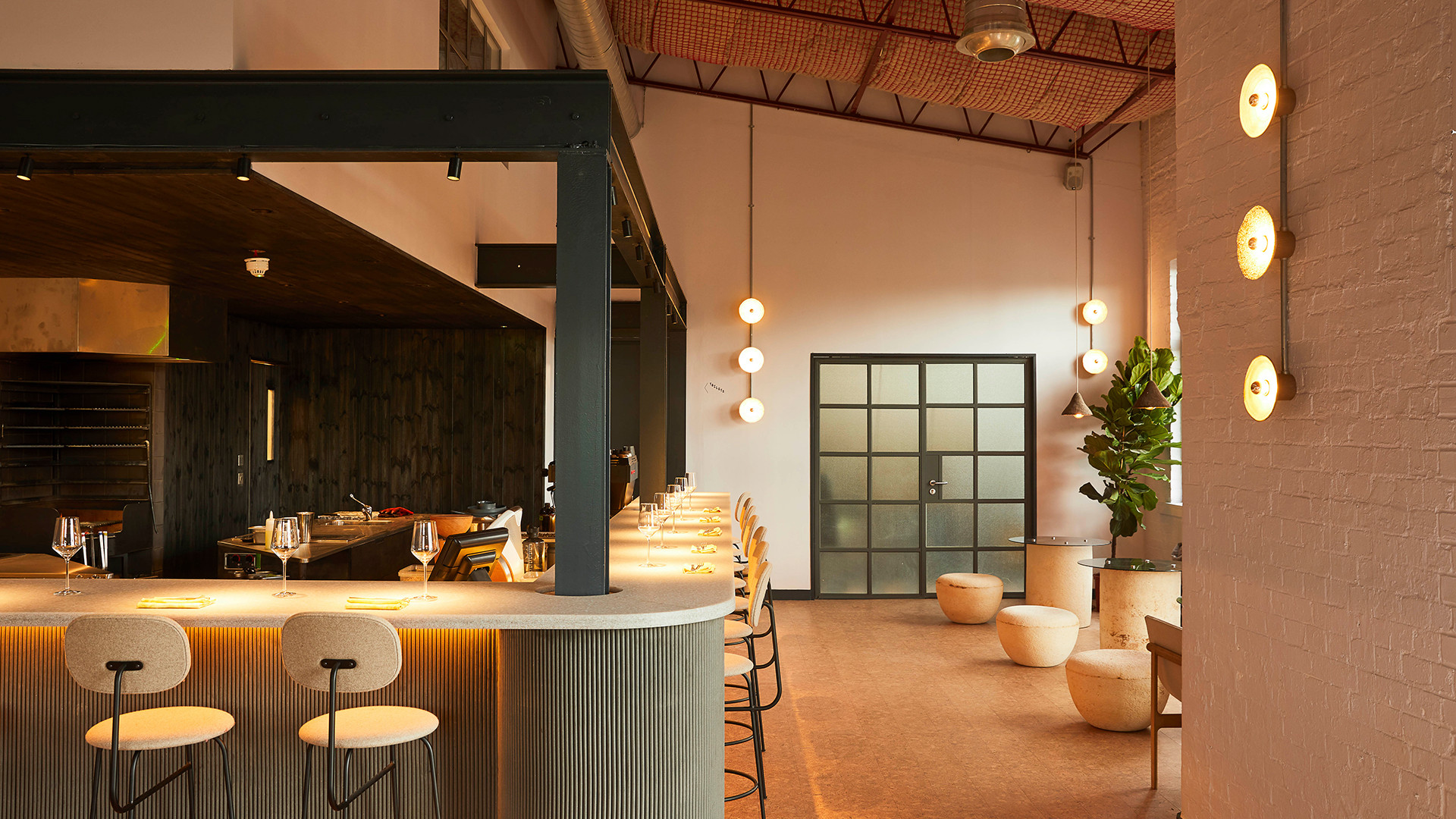
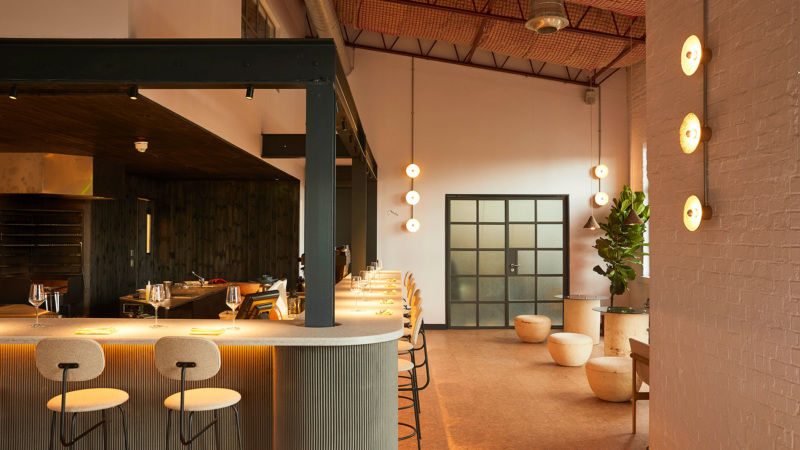
2. Geopolitical Dining
An increasingly interconnected world is impacting migration to the UK, with new residents sharing cuisines and customs.
An increasingly interconnected world is continuing to drive new generations of immigrants to visit, study and take up residence in the UK, bringing their cuisines and rich food traditions with them. Conflict and persecution have impacted this further, with refugees and migrants establishing themselves by setting up restaurants.
At Imad’s Syrian Kitchen, eponymous founder Imad Alarnab shares his country’s food and customs, after fleeing the civil war in 2015. Elsewhere, migrants and refugees from Hong Kong, Xinjiang, Ukraine, Russia and Poland have also settled in London, and 2023 may bring more access to these cuisines as diners aspire to broaden their cultural curiosity, support a good cause and further welcome these communities and their cuisine into society.
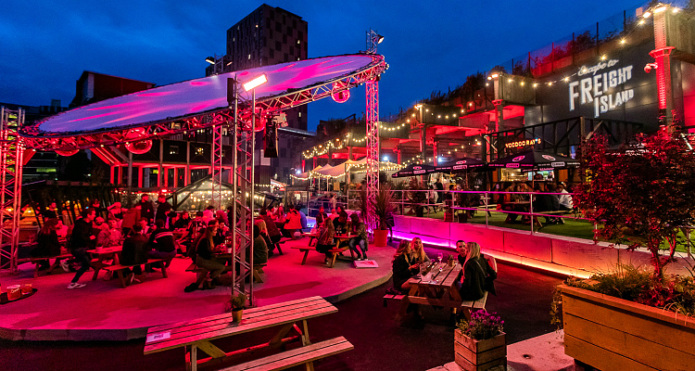
Fun Fact: Escape to Freight Island draws in more new Resy users than any other venue in the UK.
3. Cultural Hubs
New collective dining spaces are appearing in major cities, offering entertainment right alongside food and drink.
As the food hall trend continues to boom, new styles of collective spaces are appearing in major cities across the UK including London, Brighton and Manchester. Food halls provide consumers with the luxury of choice and convenience, while individual operators receive the security of guaranteed footfall and a commercial safety in numbers. In 2023, food halls may be usurped by wider cultural hubs which offer even more than a stellar food and drink line- up. These hubs have conceived novel ways to maximise the space to the fullest, increase consumer enjoyment and dwell time. Manchester’s Escape to Freight Island is already blazing this trail, billing itself as a “cultural space” offering live music, DJs, comedy and films as well as amazing food and drink.
4. A Helping Hand
Culinary veterans are extending a helping hand to peers, through pop-up and residency opportunities.
With soaring rents and increased running costs posing a considerable financial challenge to the hospitality industry, established players are extending a helping hand to those with dreams of entering the industry, while reinforcing camaraderie within the industry and firming up their own bottom lines. Culinary veterans are offering up their spaces to pop-ups, residencies and talented young chefs who are still experimenting with their own food and style, instilling a collaborative spirit that champions the success of up-and- comers.
Dalston wine bar Weino Bib regularly runs pop-ups, while London pub The Gunmakers has handed over culinary control to rising star chef Ramon “El Tigre” Ramos and his Tigre Tacos. Given the dual benefit of allowing newcomers the space and opportunity to experiment, and more established places the chance to keep offerings fresh, these symbiotic partnerships will continue.
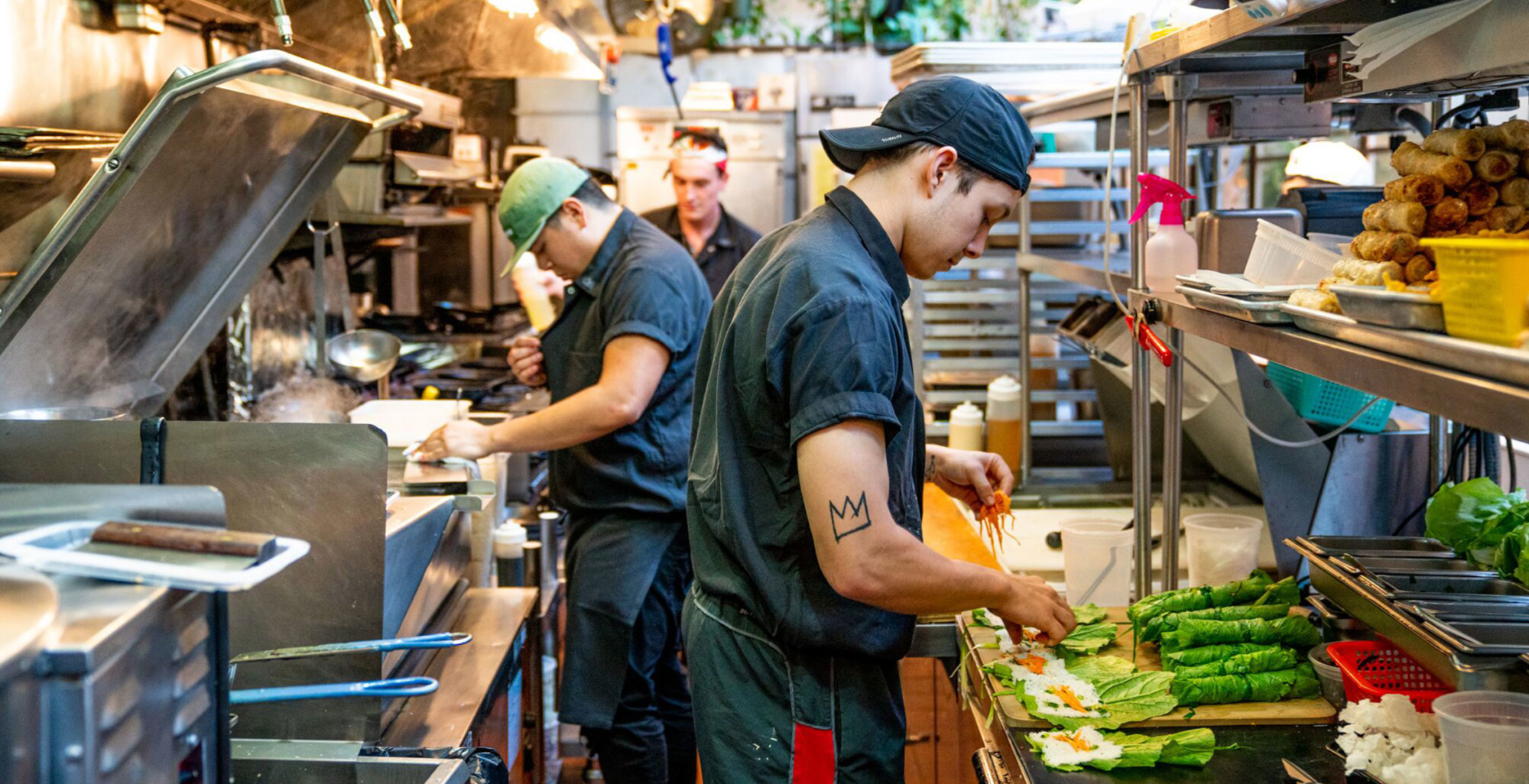
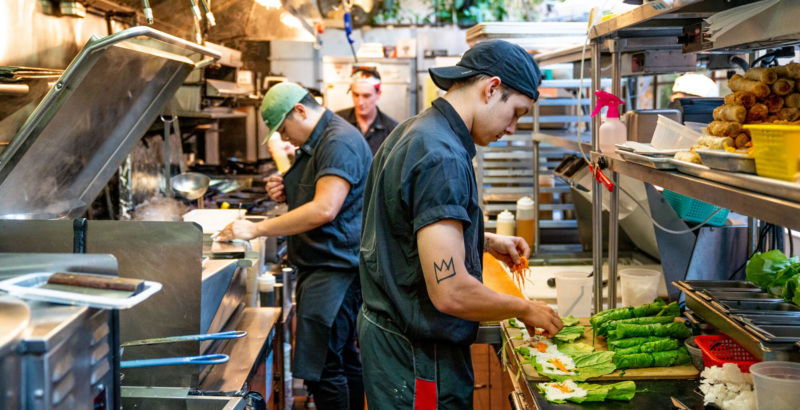
5. People First
Restaurants are adapting their workplace culture to be better employers, and to attract – and retain – talent.
The double blow of Brexit and the pandemic has contributed to a historic labour shortage which will continue to be one of the biggest challenges faced by the hospitality industry in the year ahead. To attract — and retain — talent, restaurants have needed to reassess the demands of late nights and long hours and better meet staff’s quality-of-life needs. Some of these accommodations include greater flexibility for working parents, changes in opening hours and re-instating hospitality as a career with an emphasis on progression. Restaurants already leading the way in this space are Barletta in Margate and Manteca in Shoreditch, both offering flexible shifts to their staff, whilst F.K.A. Black Axe Mangal is open only three nights per week to allow for a better work-life balance.
Brexit and the pandemic have contributed to an historic labour shortage.
6. Table For One
Restaurants are catering to diners’ desire to eat on their own terms.
In the age of self-care and expression, solo dining has become accepted and encouraged, with the hashtags #SoloDate and #DiningAlone having 150+ million views on TikTok. Nearly one in three report they have dined alone, citing preferring their own company and wanting to eat on their own timings as reasons for ditching other diners. Barrafina, who have just opened a fifth restaurant at Borough Yards, have long made an art of counter dining, while Paradise Soho has likewise made a feature of its bar counter. As more places get wise to the trend, expect to see more traditional restaurants following suit and more tables for one bookable on Resy.
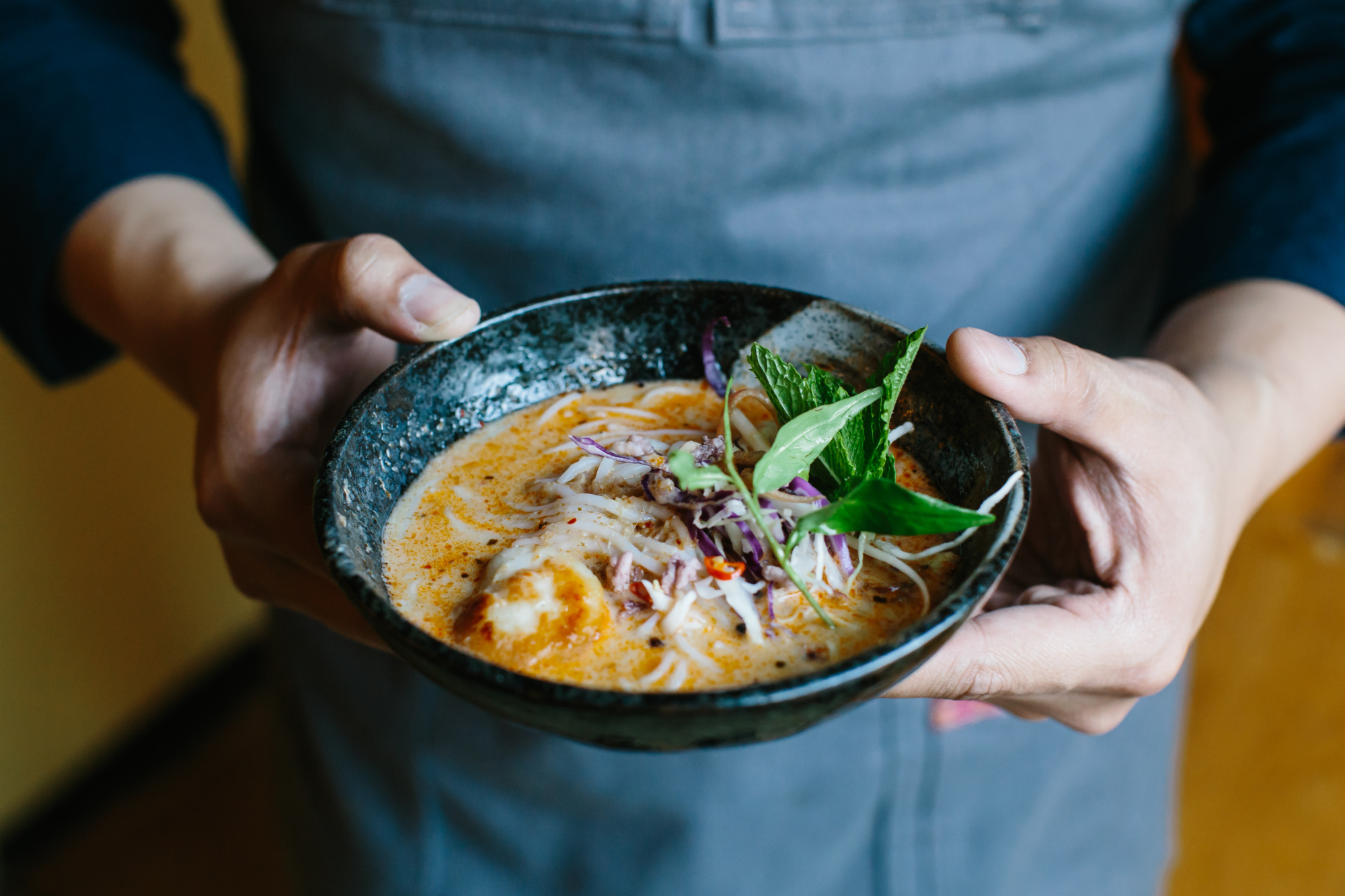
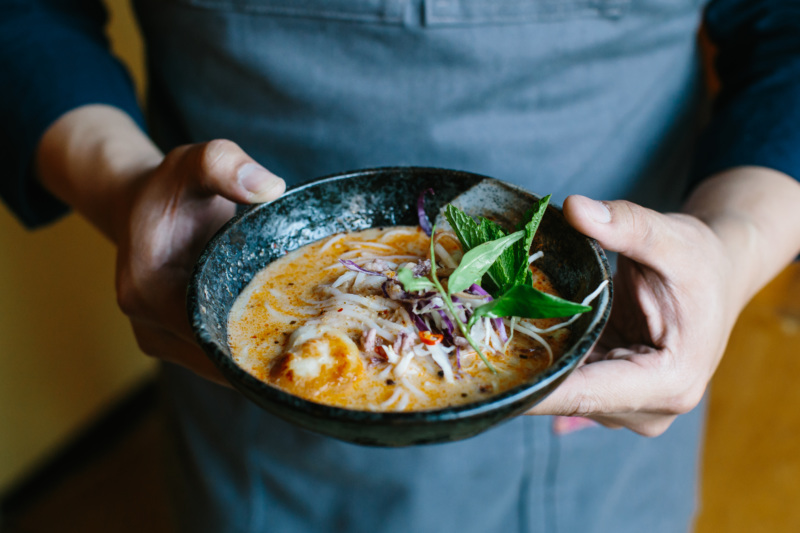
7. Global Appreciation
Cuisines beyond the European status quo are being increasingly acknowledged and celebrated. A few to watch…
The global food scene in the UK has continued to flourish, with cuisines beyond the European status quo being increasingly acknowledged and celebrated. From Chishuru and Tatale to Akoko, the past few years have highlighted West African cuisine in a major way, finally getting the recognition it deserves from both diners and on the industry’s awards circuit. Ikoyi, which heavily focused on West African spices when it first opened in 2017, has evolved at pace, creating a cuisine style now unique to itself, gaining 2 Michelin Stars and joining the World’s 50 Best Restaurants List in 2022.
Looking ahead to 2023, Colombian and Kurdish are two cuisines to watch. New Colombian/Filipino fusion restaurant KiliG takes inspiration from the roots of its founders, with the likes of arepas and sopa de lentejas gracing its menu. On the other hand, Nandine and Haringey Corbacisi celebrate Kurdish cuisine, with the community gaining visibility and increasing popularity.
8. Budding Demand For Plants
Vegetarian’ as a categorisation of restaurant is on the decline, with plant- and meat-eaters alike enjoy more veg-centric menus.
Once viewed as a niche for non- meat eaters, the categorisation of a restaurant as ‘vegetarian’ has fallen away. Simply put, a new slew of vegetarian restaurants are seen as just great restaurants, attracting vegetarians and meat-eaters alike. The success of Middle Eastern restaurant Bubala is a great example of this, having opened their second site this summer in Soho, alongside popular plant-based residencies such as Tendril from chef Rishim Sachdeva, or Plates from chef Kirk Haworth, which offers guests plant-based fine dining at Untitled Bar. As well as an anticipated rise in both the number and popularity of vegetarian restaurants in 2023, we will see a shift in menu item mix, with a greater proportion of plant-based dishes on menus. One restaurant leading the way is Acme Fire Cult, a BBQ restaurant where vegetables take centre stage. Furthermore, cuisines that are known for their meat and fish will see a more plant-based focus, including Facing Heaven’s vegan Sichuanese offering, which has received wide critical praise, and West African restaurant Tatale, which currently offers a single non- vegetarian dish on the menu.
9. Act Naturally
Natural wine is niche no more: from limited quantity drops to wine clubs and collabs, wine culture encompasses more than just what’s in the bottle.
For years now, the restaurant industry’s most in-the-know wine pros have buzzed about sought-after producers, the merits of low-intervention farming, and a return to classic winemaking practices. But diners were reluctant to drink beyond their comfort zones, associating “natural” with “funky”. But the tide has turned, and a new wave of wine bars are ready to serve (including Westerns Laundry and Naughty Piglets) alongside the embrace of the wine bars themselves. When new vintages arrive to the UK’s shores, there is a scramble for bottles, leading to “wine drops” akin to limited-edition sneaker drops. To procure them, fans have subscribed to wine clubs, wine zines, winemaker dinners, and even sport winemaker merch. Natural wine is no longer niche, it’s a lifestyle.
Bar Crispin’s Head of Wine Alex Price is currently drinking:

Salty wines for the win! Current favourites include the Loire’s Thierry Hesnault’s Blanc de la Fosse 90-year-old vine Chenin Blanc aged under flor for two years and Domaine de Bellevue’s Muscadet Granite Les Perrieres, plus the insanely saline wines of Possa in Cinque Terre whose steep sloped vineyards overlook the Ligurian Sea.
10. Tech = Connect
Diners and restaurants have never been more connected – and it’s just the beginning
It’s undeniable, we’re tethered to tech – but when it comes to dining, it can be a good thing. Pre-pandemic, the restaurant industry’s embrace of technology lagged, but in recent years, restaurants have had to prioritise digital presences (from reservations to clever Instagram content and everything in between) and in doing so, they’ve cultivated valuable communities ready to book, buy and support. Whilst counter-intuitive at first, technology enables better hospitality, and restaurant operators are on board.
Beyond reservations, restaurants are exploring the potential of NFTs and cryptocurrency, a rich territory for tech-forward restaurants to engage with guests in new ways

89% of Brits say they are more inclined to make reservations in advance before going to a restaurant, and 90% say they make reservations further in advance than they did previously.







